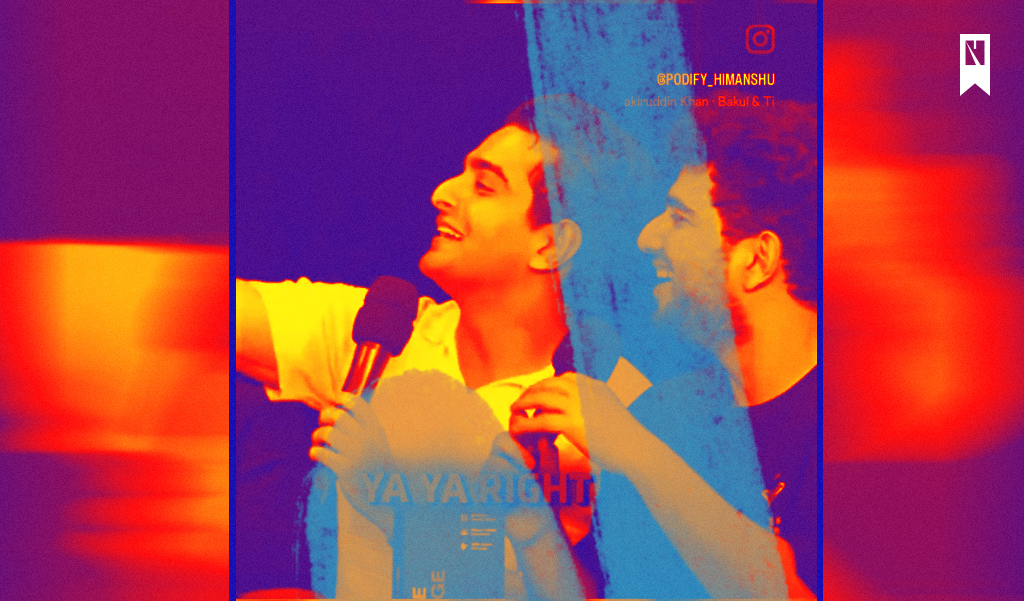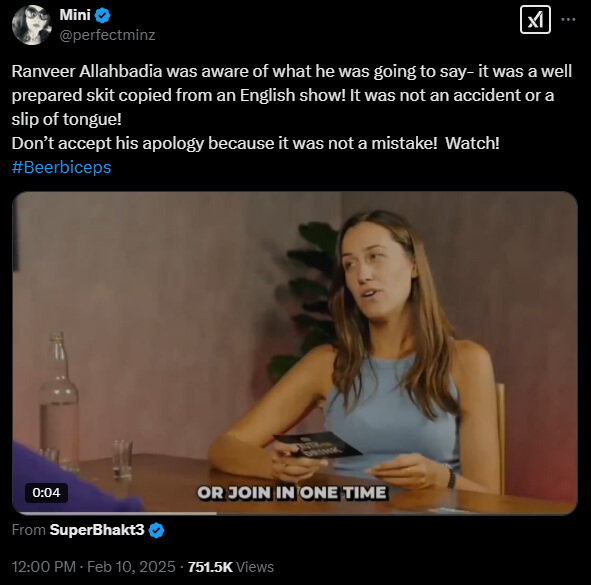The Role of Society and Shared Culture
In sociology, society is broadly defined as a group of people who share a common culture, interact with one another, and live within a defined geographic area. It is a complex social structure encompassing institutions, relationships, norms, and values that shape human behaviour.

One such shared cultural element is entertainment, with comedy playing a significant role. Laughter unites people when a joke or performance resonates with their sense of humour. However, comedy also has a darker side, where creators sometimes push boundaries under the belief that humour should be limitless.
Comedy and Its Ethical Boundaries
The latest episode of the YouTube show India’s Got Latent struck a nerve on social media platforms like X. In an audio conversation, comedian Samay Raina pushes the boundaries of humour, sparking debate. The clip below captures that moment:
The purpose of comedy is not to give a moral science lecture, comedy has no responsibility, comedy is comedy, comedy is to take you away from reality and to make you have fun. In life, bade issues hai logon ke, toh log life se switch off karke comedy dekte hai, aur uss comedy ko unko moral science ka lecture de denge toh who ek dum hi, comedy nahi raha, entertaining nahi raha.
Translated: In life people face bigger issues and one likes to switch those off and watch comedy. So, if we comedians turn comedy into a moral science lecture, then remains no comedy, its not entertaining anymore
This at the onset though seems reasonable yet also raises an important question: What truly defines comedy? Is there a form of comedy that remains genuinely entertaining without crossing ethical lines? Or has comedy become reliant on vulgarity and mere ‘shock and awe’ value to capture attention and go viral? Is this the ultimate goal?
The Psychological Impact of Shock Humour

Life is challenging, and everyone bears unseen burdens, wrestling with their doubts, fears, and the silent battles within. The reality is that nothing truly satisfies. People seek solace in various ways—both constructive and destructive—as a means of coping with life’s hardships. But is there a better way?
Has Ranveer Allahabadia’s attempt at humor recently, pushed the boundaries of wit, or has it simply slipped into vulgarity blurring the line between comedy and crudeness? Borrowed from the Australian show Truth or Drink, the question sparks a larger debate: Is this what qualifies as comedy today? Here’s the quote:
“Watch your parents have sex everyday for the rest of your life or would you join in once and stop it forever?”

This is pure cognitive dissonance—can this truly be called comedy? Disturbingly, this mindset is not only troubling but also steering India’s younger generation toward self-destruction. Was this line of questioning a glimpse into the comedian’s own experiences, or merely a reflection of the environment that shaped him? Either way, the impact goes beyond concern—Is it not crafting a dangerous narrative, one where children grow up believing that shock, obscenity, and recklessness are the benchmarks of fame, fun, and influence?
The Influence of Public Figures and Accountability

Does his proximity to the central government grant him a quiet immunity, a privilege of unchecked influence that others might not receive? A certain leniency, a shield from scrutiny? If the same actions had come from voices on the fringes, would they have been met with the same leniency?
When Ranveer Allahabadia was bestowed with the National Creator Award by the Honourable Prime Minister of India, Mr. Narendra Modi, it set a precedent—it was an unspoken endorsement of influence responsibility and reach. But does recognition demand a higher standard, or is it merely a token of success? And if we expect more from those in the public eye, is it because they are truly held to a higher standard, or because we simply hope they choose to uphold one?
Finding Refuge in the Gospel
There have been many seasons in life where the gospel of Jesus has been my only refuge—a wellspring of hope in the midst of uncertainty. In John 10:10, Jesus declares His purpose: to bring life, not just in existence, but in abundance—a life that transforms, even in the face of the deepest adversity.
But what does it truly mean to take refuge in the gospel? Is it merely a source of comfort, or is it the very foundation of renewal? In a world grasping for answers, could it be that the hope India longs for is already found in the message of Jesus Christ?
If only you would choose to drink from it—Jesus offers living water that quenches every thirst. It is meant for you and for me. It is meant for those who can no longer stand on their own, for the broken, for those who have lost their way home.
A Prayer for India
Dear Father,
I pray and surrender my beloved country, India, and all who are struggling—whether with financial burdens, the loss of a loved one, or battles with health. When life feels overwhelming and makes no sense, help us turn to You, Jesus. Please save us.
In your name, we pray.




